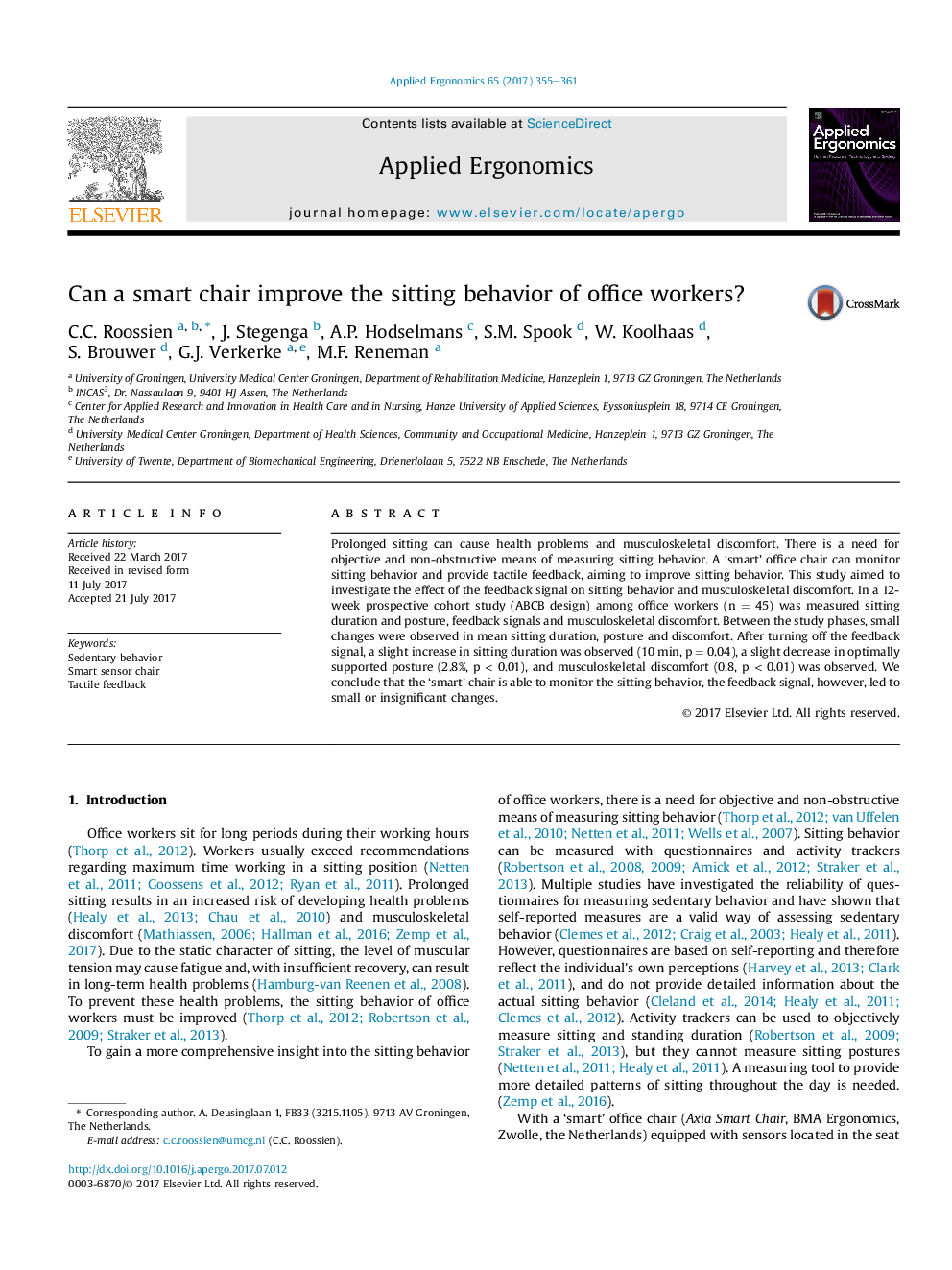| Article ID | Journal | Published Year | Pages | File Type |
|---|---|---|---|---|
| 4971963 | Applied Ergonomics | 2017 | 7 Pages |
Abstract
Prolonged sitting can cause health problems and musculoskeletal discomfort. There is a need for objective and non-obstructive means of measuring sitting behavior. A 'smart' office chair can monitor sitting behavior and provide tactile feedback, aiming to improve sitting behavior. This study aimed to investigate the effect of the feedback signal on sitting behavior and musculoskeletal discomfort. In a 12-week prospective cohort study (ABCB design) among office workers (n = 45) was measured sitting duration and posture, feedback signals and musculoskeletal discomfort. Between the study phases, small changes were observed in mean sitting duration, posture and discomfort. After turning off the feedback signal, a slight increase in sitting duration was observed (10 min, p = 0.04), a slight decrease in optimally supported posture (2.8%, p < 0.01), and musculoskeletal discomfort (0.8, p < 0.01) was observed. We conclude that the 'smart' chair is able to monitor the sitting behavior, the feedback signal, however, led to small or insignificant changes.
Keywords
Related Topics
Physical Sciences and Engineering
Computer Science
Human-Computer Interaction
Authors
C.C. Roossien, J. Stegenga, A.P. Hodselmans, S.M. Spook, W. Koolhaas, S. Brouwer, G.J. Verkerke, M.F. Reneman,
